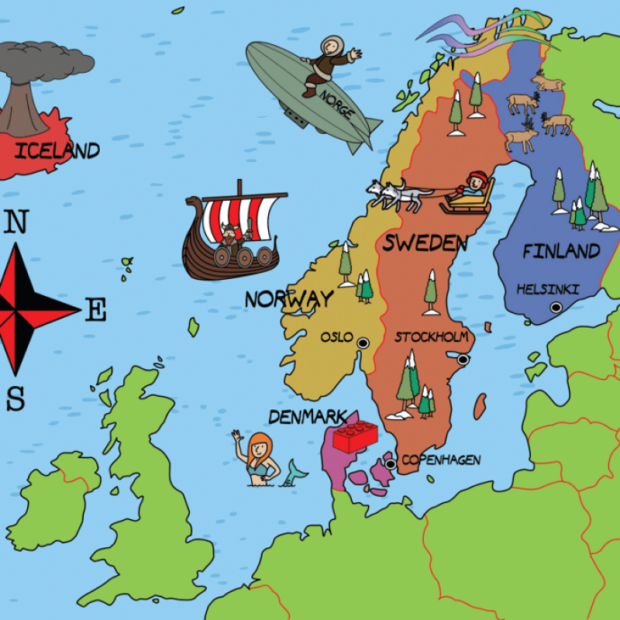Top Scandi SuperstitionsEvery culture has superstitions – and of course, Scandinavia is no exception – in our countries, old wives’ tales and superstitions still reign today. Everybody knows about not walking under a ladder, not putting new shoes on the table and not opening the umbrella indoors, but Scandinavians have a few of their own unique ones. Here are some of the best. Feel free to add your own in the comments – we’d love to hear more! The black cat
A wonky slice of cake
Flags after sunset
Keys on the table Break a leg The number thirteen – Scandi version Touch wood Read more in Bronte’s book Nørth – out now in all good bookshops. Go on, have a peek here – it’s rather informative. |

Scandi inspiration
Sale
K-Salat Remoulade – Picalilli Style Condiment 375g
Sale
Abba Kalles Kaviar Original – Smoked Cod Roe 190g
Sale
Estrella Sourcream & Onion Crisps 175g
Sale
Fazer Tyrkisk Peber Original – Salt Liquorice Sweets 120g
Sale
Marabou Mjolkchoklad Daim – Milk Chocolate With Daim 200g
Sale
Wasa Husman – Traditional Rye Crispbread 260g
Sale
Wasa Frukost – Wheat Crispbread 240g
Sale
Tine Gudbrandsdalen Brunost – Brown Cheese (RED) 500g
Sale
Malaco Djungelvral – Salty Liquorice 90g
Sale
Marabou Mjolkchoklad Schweizernot – Hazelnut Chocolate 200g
Sale
Marabou Mjolkchoklad – Milk Chocolate 200g
Sale
Leksands Original – Rye Crispbread 200g
Sale
ScandiKitchen Rodbetssallad – Beetroot Salad 200g
Sale
Felix Lingonsylt – Wild Lingonberry Jam 283g
Sale
Abba Inlaggningssill – Plain Herring 430g BEING DELISTED BB 25/8/25
Sale
Torsleffs Vaniljesukker – Vanilla Sugar 100g
Sale
Pagen Gifflar Kanel – Mini Cinnamon Buns 260g
Sale
























































